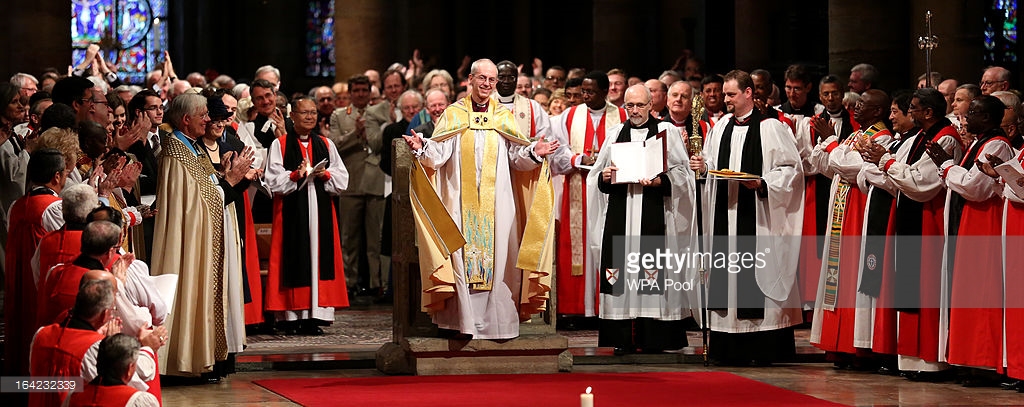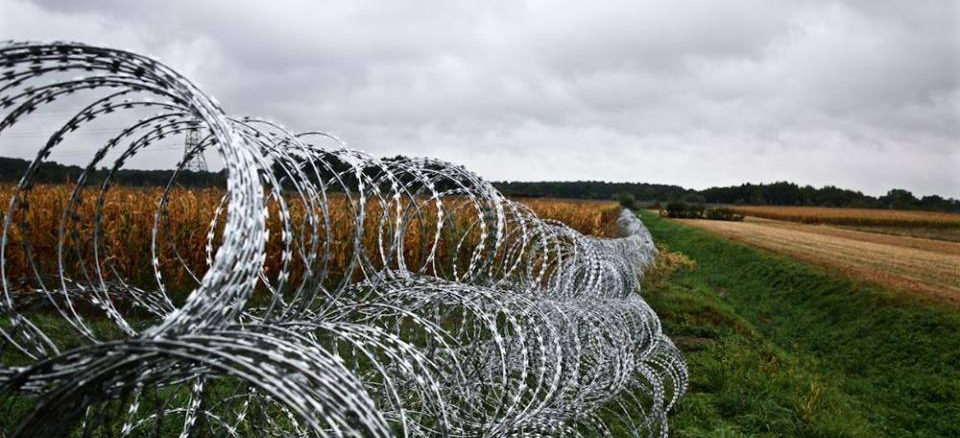The Archbishop’s Fears
by Matt Carr
One of the most depressing and inane themes in the great British ‘debate’ about immigration is the idea that there is no debate about immigration. It’s a refrain emanating mostly from the right, which has been replayed for years like a stuck record. It goes essentially like this; ‘we’ aren’t allowed to speak about immigration because the politically-correct, multicultural Islington elite won’t let us, and the public can’t even express its legitimate concerns about because they’ll be accused of racism by the liberal/lefty hordes that control everything.
Such power the left has! Anyone listening to this plangent lament would think that talking about immigration in the UK is equivalent to praising Trotsky in Stalinist Russia, and it’s as nonsensical as it is dishonest. There has never been any period in my lifetime in which immigration had not been discussed openly by the same rightwing newspapers and political forces that insist they aren’t allowed to discuss it.
I cannot remember a single period in which this discussion did not describe immigrants and foreigners as some kind of threat, burden or problem. In the British media, immigration has been a political obsession for decades, and the ‘debate’ about it is dominated by a handful of viciously anti-immigrant newspapers that massively outsell all their rivals, and which routinely present immigrants and foreigners in the most negative – and frequently – demeaning terms.
Politicians have also joined in the fearmongering, and either pandered directly to the worst prejudices emanating from the rightwing media and the public, or paid more nuanced lip service to them through coded and guarded references to the public’s ‘concerns’.
So the idea that there is no debate about immigration is at best a fantasy and at worst a downright lie. The right says what it likes about immigrants, just as it always has, and what it has to say is nearly always bad. This is worth remembering, when we consider this extract from Archbishop Welby’s interview with The House magazine yesterday, which has generated a lot of headlines: .
‘Welby accepts that, politically, the debate around refugees and migrants is deeply divisive, and says concerns about the pressure new arrivals could place on communities and services are entirely legitimate.
“There is a tendency to say ‘those people are racist’, which is just outrageous, absolutely outrageous,” he says. “Fear is a valid emotion at a time of such colossal crisis. This is one of the greatest movements of people in human history. Just enormous. And to be anxious about that is very reasonable.
“In fragile communities particularly – and I’ve worked in many areas with very fragile communities over my time as a clergyman – there is a genuine fear: what happens about housing? What happens about jobs? What happens about access to health services? There is a genuine fear. And it is really important that that fear is listened to and addressed. There have to be resources put in place that address those fears.”’
No one can be surprised that these pronouncements have been greeted with a hallelujah chorus by the likes of the Daily Mail, Migration Watch, and even by the dim-witted monstrosity Ian Duncan-Smith. To be fair to Welby, this may not have been his intention. His suggestion that ‘resources be put in place that address those fears’ is not an argument that you are likely to hear from any of the people who celebrated his remarks yesterday, most of whom insist that no such resources are available or that they should be reserved for ‘our people.’.
In the same interview Welby also pointed out that local communities across the country have “demonstrated an enormous capacity” to deal with the refugee crisis at a “micro” level. Nevertheless, the best that can be said about his shallow and uncritical recycling of the ‘those people are racist’ trope, is that it isn’t helpful.
Once you’ve choked back your hysterical laughter at the spectacle of Ian Duncan-Smith, of all people, condemnation the ‘elites’ that suppressed the debate about immigration, you realize that the Archbishop of Canterbury has inadvertently conferred the authority of the Church of England to the fake victimhood narrative that the right has made its own.
After all, it’s one thing to argue that resources will have to be put in place to cope with immigration – whether ‘economic migrants’ or refugees. It’s quite another to argue that migrants and refugees come here to take away our jobs, our houses, our benefits, and our NHS, or present them as a ‘swarm’ or and invading ‘army’ of potential terrorists and cultural aliens who won’t or can’t integrate or be like us. But these are the arguments that we’ve been hearing for a long time, and they are inextricably bound up with the fears and concerns that Welby regards as legitimate.
No, these fears may not be ‘racist’ in the old sense. Usually, they won’t mention skin colour, but culture or religion or nationality. The loathing and contempt that accompanies these ‘fears’ is equally able to project itself onto Polish plumbers or Bulgarians as it is onto ‘bogus asylum seekers’ in Calais.
But these fears are not what Welby seems to think they are. They are not legitimate, but steeped in xenophobia, nativism and – particularly when they are directed towards the ‘colossal’ refugee movements that Welby describes, they are based on racist assumptions that generally don’t like to advertise themselves as such.
There is certainly a discussion to be had about Britain’s ‘fragile communities’, but Welby does not address what makes them fragile in the first place. If he had done this, he might have opened another debate about the immense damage inflicted on British society by two successive Tory governments – as the church once did when it published its ‘faith in the city’ response to Thatcherism in the 80s.
He might have raised questions about inequality, tax evasion, zero hours contracts, stagnating wages, job insecurity, underfunding of public services, privatisation, lack of social housing, high rents, the exodus of doctors and teachers, and a whole range of other issues. All these things also make communities fragile. They also make people fearful and concerned, yet politicians only ever seem interested in addressing these fears and concerns when they are directed towards foreigners.
And now the Archbishop of Canterbury has lent his voice to the chorus, and the government has praised him for his intervention, and the Daily Mail proudly proclaims that ” It’s NOT racist to fear migration’ ” in a piece on Welby’s interview that is followed by the usual rancid and bitter observations that you would expect from its readers.
Well no one can be surprised about that, but I can’t help wondering what Jesus would have said. .
Matt Carr blogs at the http://infernalmachine.co.uk/
1 comment
One response to “The Archbishop’s Fears”
Left Unity is active in movements and campaigns across the left, working to create an alternative to the main political parties.
About Left Unity
Read our manifesto
Left Unity is a member of the European Left Party. 
Read the European Left Manifesto
ACTIVIST CALENDAR
Events and protests from around the movement, and local Left Unity meetings.

Saturday 10th January: No to Trump’s war on Venezuela
Protest outside Downing Street from 1 to 3pm.
More events »
GET UPDATES
Sign up to the Left Unity email newsletter.
CAMPAIGNING MATERIALS
Get the latest Left Unity resources.





I think he also said the UK isn’t taking enough refugees